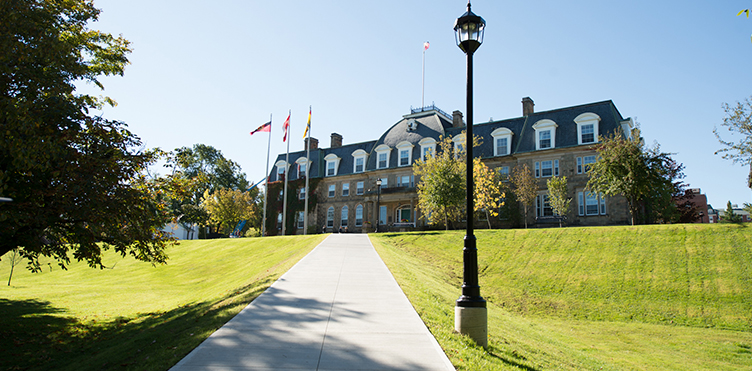About the plan

The first post-secondary institution in New Brunswick to implement a climate change action plan
UNB is the ideal setting to implement climate change solutions, as an intellectual leader in the community and a top-rated research facility.
Towards a carbon neutral institution by 2050
UNB Sustainability developed a three-year strategy to create a Climate Change Action Plan for both campuses.
Developing the Climate Change Action Plan
Phase one
A variety of stakeholders of the Fredericton and Saint John campuses formed the Climate Change Action Plan Committee to guide the creation of the plan.
The plan's first year focused on public consultation and engagement. The committee also determined what the campus and general community deemed as essential focus areas for a climate plan, including:
- energy and buildings
- procurement
- transportation
- waste management
- sustainable grounds
- sustainable food systems
- education and programming
Phase two
The second phase included the development of baselines, targets and strategies to serve as the main content within the plan.
This involved the creation of task forces for each focus areas, with staff, faculty, students and community members who are considered experts.
The task force presented their data to the CCAPC for their input and approval.
Phase three
This document's creation and approval concluded the different phases of the plan's development.
Adaptation to climate change

Climate change action can be viewed through two lenses: mitigation and adaptation.
Mitigation reduces greenhouse gas emissions and reduces the impact of climate change.
Adaptation lowers the risks associated with the consequences of climate change.
The Intergovernmental Panel on Climate Change (IPCC) describes the vulnerability to climate change through these three factors:
- exposure to hazards
- sensitivity to hazards
- capacity to adapt to those hazards
Scientists predict New Brunswick will be warmer, with increased precipitation, storm events and severe weather events, such as:
- rising sea levels
- storm surges
- coastal erosion
- flooding
No data at UNB Fredericton or Saint John shows the campus-specific risks and vulnerabilities to adapt to climate change. By 2025, UNB would like to conduct assessments to prepare the adaptation action plan and plan for the future.
